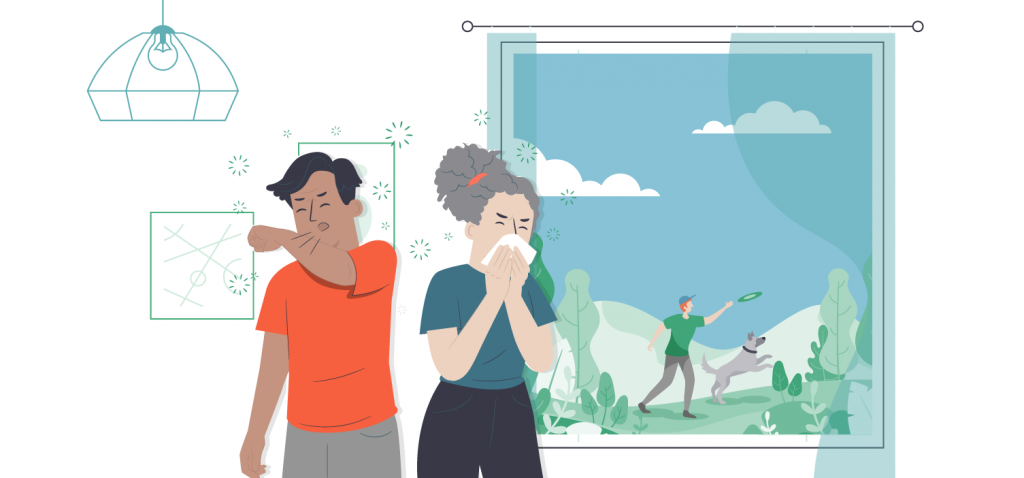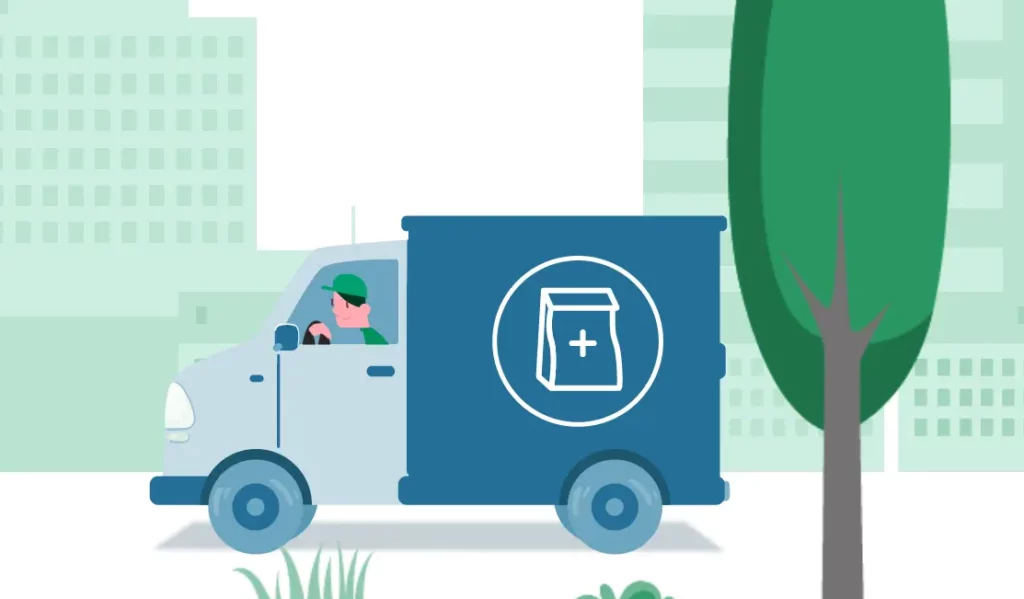Hay fever is an allergic reaction to pollen, and affects one in five people at some point in their lives. The symptoms are similar to that of a cold, and the severity will depend on the individual; hay fever is not to be underestimated, for some it can be a real struggle!
Fortunately, there’s a wealth of treatments out there (many of which can even be ordered on the Healthera app!) – but we’ll cover treatments later on. First, some general info!
When Does Hay Fever Season Start?
Hay fever symptoms first make an appearance during spring as plants begin to flower, releasing pollen in the air. This continues throughout the summer and is particularly bad when there’s a high level of humidity and the weather is warm and/or windy.
Some years, symptoms are worse due to something called a pollen bomb, which happens when warmer weather follows a long winter. This causes plants that couldn’t flower earlier in the year to do so at once, and over a short period of time, resulting in a higher concentration of pollen in the air.
Hay fever usually lasts weeks or months, but severity of symptoms can differ depending on which type/s of pollen you’re most allergic to. There are three types of hay fever causing pollen:
Tree pollen: March – April (early spring)
- Grass pollen: May – July (late spring and summer)
- Weed pollen: August (late summer)
Generally speaking, those who have an allergy to one type will display at least some symptoms of another.
Hay Fever Signs & Symptoms
Common symptoms include:
- Sneezing and coughing
- Runny or blocked nose
- Itchy, red, water or puffy/swollen eyes
- Itchy mouth, throat, ears and nose
- Headache
- Pain around temples
- Earache
- Tiredness / Fatigue
- Loss of smell
- Sore throat
Symptoms can be more severe if you have asthma, these include:
- Shortness of breath
- Wheezing and coughing
- Tight feeling in your chest
Children with hay fever show the same symptoms that adults do. Things to look out for are:
- Frequently sneezing – especially outside
- Constantly rubbing their eyes
- Runny nose with clear fluid
What causes hay fever?
Hay fever is a type of allergic reaction; an allergic reaction is your immune system producing antibodies to protect you from a substance – an allergen – that your body has identified as harmful. This releases protective chemicals such as histamines and results in a display of symptoms, such as sneezing and itching. Of course, pollen is not actually harmful to your body. But for some of us, our immune system doesn’t know that and will try to protect us anyway.
If you’re already familiar with the symptoms of hay fever, you might not feel the need to see a doctor – which is totally fine! In most cases, symptoms are manageable with over the counter treatments you can get via the Healthera app.
If you’ve been taking treatment but not seeing any improvement, it could be worth getting in touch with a doctor – or at least having a consultation with a pharmacist – as you could qualify for stronger meds.
Hay Fever Treatments
When the pollen count is high, the NHS advises you to take measures to reduce your exposure to the allergens, including staying indoors whenever possible, wearing wraparound sunglasses to better protect your eyes, avoiding freshly cut grass, keeping doors and windows shut in the home, and vacuuming regularly.
For most, you can relieve hay fever symptoms with over the counter medicine. These include antihistamine tablets, nose sprays (both steroid and antihistamine), eye drops, and wipes. You can also try non-medicated options, such as saline sprays – if you’re new to these types of products, it’s best to chat to a pharmacist beforehand. Simply open the Healthera app and send a direct message to your pharmacist in just a few taps.
How To Cure Hay Fever Permanently
It might be comforting to know that extensive research is being done to find ways to treat allergies permanently. One of these ways is training your immune system to not react to harmless allergens. This method, immunotherapy, has been around for a long time and has been used for those with severe hay fever, and other allergies. As it currently stands, immunotherapy doesn’t cure allergies, but significantly reduces the severity.


